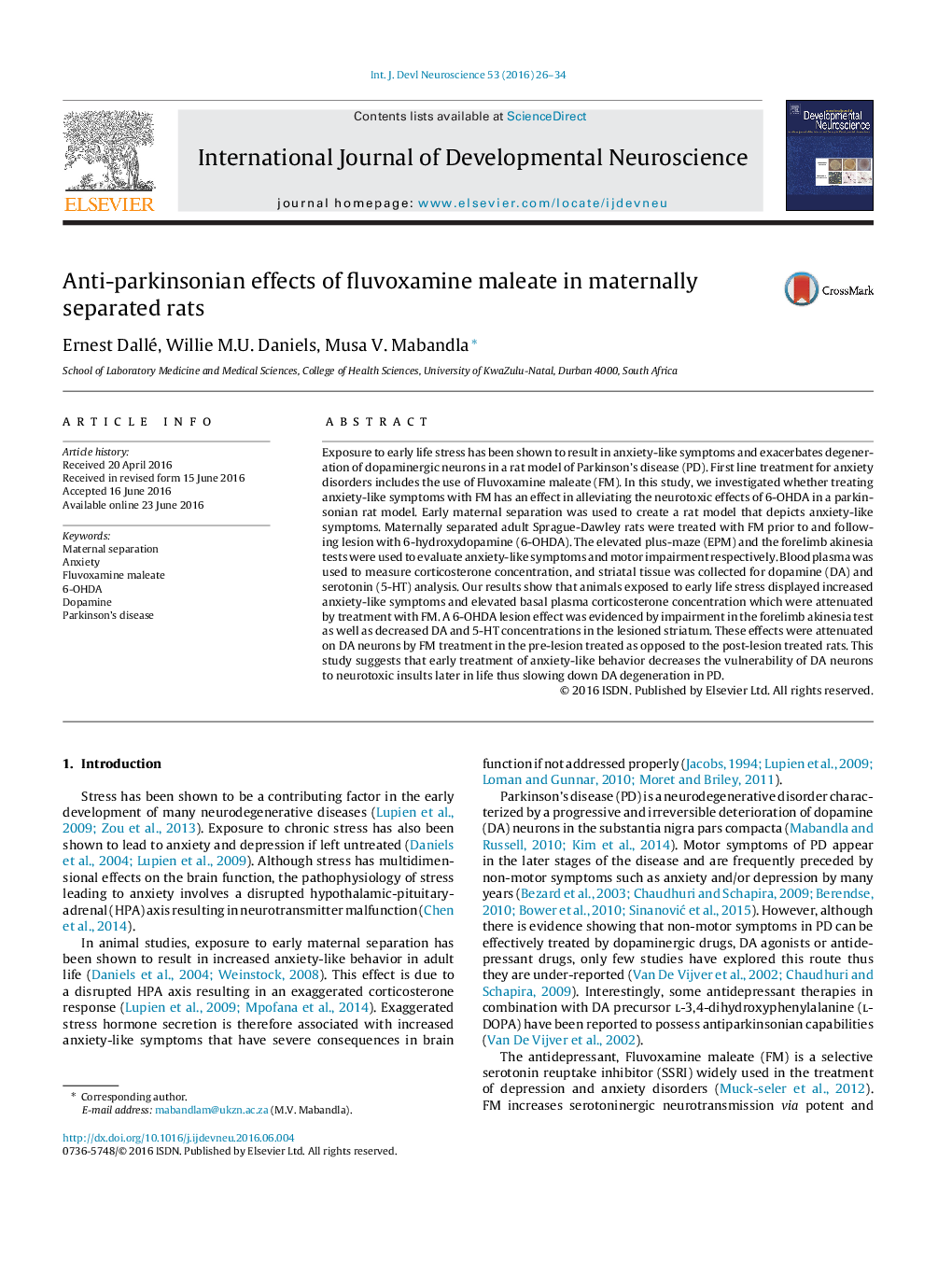| Article ID | Journal | Published Year | Pages | File Type |
|---|---|---|---|---|
| 2785612 | International Journal of Developmental Neuroscience | 2016 | 9 Pages |
•Maternal separation causes anxiety-like symptoms.•6-OHDA lesion of the medial forebrain bundle (MFB) causes degeneration of dopaminergic neurons.•Fluvoxamine maleate (FM) treatment decreases DA neurons vulnerability in pre-lesion treated animals.
Exposure to early life stress has been shown to result in anxiety-like symptoms and exacerbates degeneration of dopaminergic neurons in a rat model of Parkinson’s disease (PD). First line treatment for anxiety disorders includes the use of Fluvoxamine maleate (FM). In this study, we investigated whether treating anxiety-like symptoms with FM has an effect in alleviating the neurotoxic effects of 6-OHDA in a parkinsonian rat model. Early maternal separation was used to create a rat model that depicts anxiety-like symptoms. Maternally separated adult Sprague-Dawley rats were treated with FM prior to and following lesion with 6-hydroxydopamine (6-OHDA). The elevated plus-maze (EPM) and the forelimb akinesia tests were used to evaluate anxiety-like symptoms and motor impairment respectively. Blood plasma was used to measure corticosterone concentration, and striatal tissue was collected for dopamine (DA) and serotonin (5-HT) analysis. Our results show that animals exposed to early life stress displayed increased anxiety-like symptoms and elevated basal plasma corticosterone concentration which were attenuated by treatment with FM. A 6-OHDA lesion effect was evidenced by impairment in the forelimb akinesia test as well as decreased DA and 5-HT concentrations in the lesioned striatum. These effects were attenuated on DA neurons by FM treatment in the pre-lesion treated as opposed to the post-lesion treated rats. This study suggests that early treatment of anxiety-like behavior decreases the vulnerability of DA neurons to neurotoxic insults later in life thus slowing down DA degeneration in PD.
